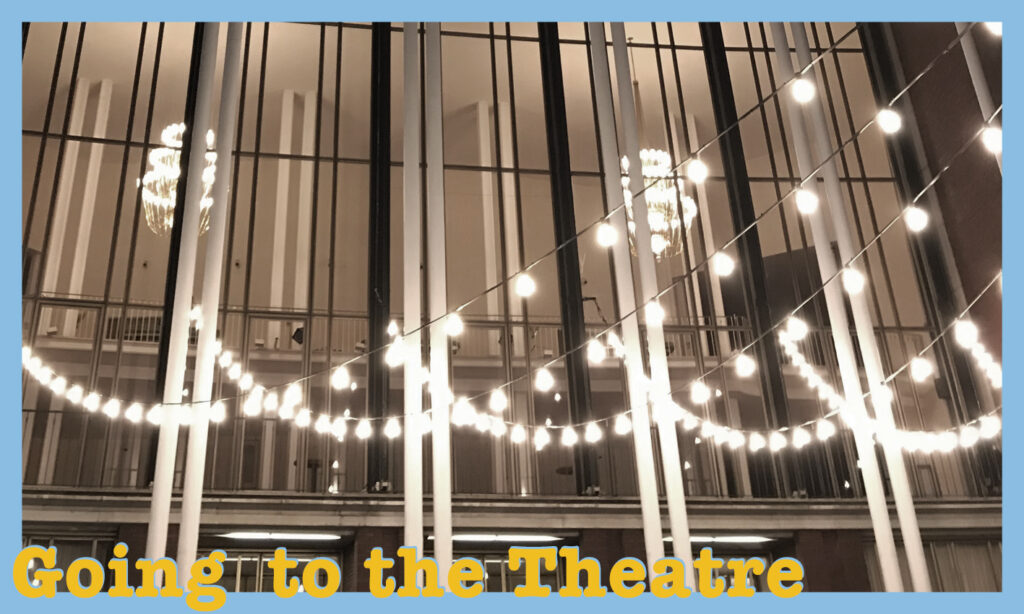From Anecdote to Theory: Working Sessions 2020
Concept and Facilitation: Sascha Förster (Theaterwissenschaftliche Sammlung, University of Cologne) and Ann-Christine Simke (Queen Margaret University, Edinburgh/University of Glasgow)
For most of the year 2020, many theatre goers, theatre lovers, practitioners, scholars and critics have been forced to celebrate their love of this art form physically and often also socially distanced and online. They might have stayed up all night with Gob Squad (Show Me A Good Time), revelled in the opportunity to see acclaimed productions by National Theatre London streamed on YouTube (National Theatre at Home) and were excited to see numerous theatre festivals making their curated programmes available online.
All over the world, theatres, performers and festivals stepped up to the challenge of revisiting their repertoire and making shows available, free of charge, to a wider and broader audience. And it seems like this distanced, often asynchronous and individualised mode of theatre experience will last longer than everyone expected. Despite many efforts to replace and substitute the experience of actually going to the theatre, and physically sharing space with other audience members and performers, we cannot deny that something is missing.
With new pandemic waves already announcing themselves, when will theatre eventually return to being the “art of assembly” (Nicholas Berger)? And once we return to foyers and auditoriums, arenas, circles and black boxes and actually share a space with other people, will it feel the same?
As answers to these questions seem to be elusive as of yet, we are determined to take stock and make an effort to remember what our rituals, habits and cherished routines – personal as much as culturally determined – of going to the theatre looked like before the pandemic required us to experience theatre in front of a screen.
Call for Contributions
We are inviting theatre researchers from all over the world to join us in a series of zoom workshops dedicated to the description, celebration and analysis of “going to the theatre”. We will start with anecdotes and personal accounts of theatre routines that frame our engagement with the event on stage and ask ourselves in what way these routines are filtered through intersectional lenses and dependent on specific cultural contexts. This initial sharing of anecdotal evidence will then be the basis for a theoretical engagement with the context of theatre going.
Workshop 1 (end of October) – will comprise a sharing of the collected stories and anecdotes
Workshop 2 (mid November) – will consist of engaging with theoretical frameworks
Workshop 3 (early December) – will be an open symposium-style event to share the outcomes so far
Our workshop dates will be decided on once the participants are selected to ensure that everyone is able to take part.
The working language will be English. The group will consist of a maximum of 15 participants and the sessions are designed to facilitate a working group atmosphere: discussion, sharing and developing ideas and theoretical tools together take precedence over sharing of finished research papers.
We particularly welcome early-career researchers and want to express our specific interest in perspectives from South America, Africa and Asia.
The outcome of our working group sessions will be determined by the findings and interests of the group and can take the form of a publication, blog or online event.
Expressions of Interest
We are inviting contributions by theatre researchers who are motivated to think about their own personal relationship with routines that frame their engagement with performances and who are interested in thinking through the form of anecdotes and their relationship to theory. Your contribution for our first working session will take the form of a descriptive, personal, anecdotal account of up to 10 minutes (ca. 1000 words).
If you want to express your interest in joining our sessions, no full contributions are necessary yet, just send a short statement to ASimke@qmu.ac.uk and sascha.foerster@uni-koeln.de answering the following questions:
- What is the cultural context of your perspective? What is your specific perspective within that context?
- Which aspect/phenomenon of going to the theatre will you write about?
- This is a bit of a gimmicky question but it can kick-start thinking about habits and cherished routines: Which prop do you need for recreating an evening at the theatre – special snacks, clothes?
- When watching theatre online, have you experienced formats that differed from the usual (live) streaming event? In what way? Did it work?
- Please give a working title for your contribution.
The deadline for expressions of interest is the 4th October 2020. – NEW: Extended deadline: 25th October 2020.
